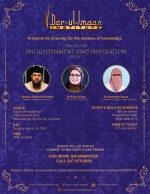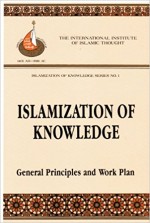By JAVEED IQBAL SAIT
Dr. Isma’il Raji al-Faruqi was born in Jaffa, Palestine. His father, ‘Abd al-Huda al-Faruqi, was an Qazi (Islamic judge) and a practicing religious person and was well-versed in Islamic scholarship. Dr. Faruqi received his traditional/religious education at home from his father and in the local Masjid. He began to attend the French Dominican College Des Frères (St. Joseph) in 1936.
His first appointment was as a Registrar of Cooperative Societies (1942) under the British Mandate government in Jerusalem, which appointed him in 1945 the district governor of Galilee. When Israel became an independent Jewish state in 1948, Dr. al-Faruqi at first emigrated to Beirut, Lebanon, where he studied at the American University of Beirut, then enrolled the next year at Indiana University’s Graduate School of Arts and Sciences, obtaining his M.A. in philosophy in 1949. He was then accepted for entry into Harvard University’s department of philosophy and was awarded his second M.A. in philosophy there in March 1951, with a thesis entitled Justifying the Good: Metaphysics and Epistemology of Value. However, he decided to return to Indiana University; he submitted his thesis to the department of philosophy and received his Ph.D in September 1952. By then he had a deep-rooted background in classical philosophy and the developing thought of the western tradition.
He then studied Islam at Cairo and other centers of Muslim learning, and Christianity at the Faculty of Divinity, McGill University. He taught at the Institute of Islamic Studies, McGill University; the Central Institute of Islamic Research, Karachi; the Institute of Higher Arabic Studies of the League of Arab States, Cairo University; and al Azhar University, Cairo, and, between 1964 and 1968 was Associate Professor of Religion at Syracuse University, developing a program of Islamic Studies.
From the fall of 1968 he was Professor in the Department of Religion at Temple University until his death in 1986.
Dr. Isma’il al-Faruqi attempted to articulate an Islamic worldview by fortifying it with rational and scientific arguments. In the latter part of his career, he became more and more concerned with the spiritual aspects of Islam. He advocated a radical Islamization of new knowledge. He recognized that the crisis of the modern world was the crisis of knowledge. And this crisis, al-Faruqi thought, could only be cured via a new synthesis of all knowledge in an Islamic epistemological framework. The “Islamization of Knowledge†project, as it was later know, sought to arouse Muslims to become active participants in intellectual life and contribute to it from an Islamic perspective.
Summarizing the approach of Ismail al-Faruqi, Ibrahim Kalin wrote in God, Life and the Cosmos (Ashgate, 2002 p. 60-61):
Ismail [al-]Faruqi’s work known under the rubric of “Islamization of knowledge†is a good example of how the idea of method or methodology (manhaj and manhajiyyah, the Arabic equivalents of method and methodology, which are the most popular words of the proponents of this view) can obscure deeper philosophical issues involved in the current discussions of science. Even though [al-]Faruqi’s project was proposed to Islamize the existing forms of knowledge imported from the West, his focus was exclusively on the humanities, leaving scientific knowledge virtually untouched. This was probably due to his conviction that the body of knowledge generated by modern natural sciences is neutral and as such requires no special attention.
Thus, [al-]Faruqi’s work and that of [International Institute of Islamic Thought] IIIT after his death concentrated on the social sciences and education. This had two important consequences. First, [al-]Faruqi’s important work on Islamization provided his followers with a framework in which knowledge (`ilm) came to be equated with social disciplines, thus ending up in a kind of sociologism. The prototype of [al-]Faruqi’s project is, we may say, the modern social scientist entrusted as arbiter of the traditional `Alim. Second, the exclusion of modern scientific knowledge from the scope of Islamization has led to negligent attitudes, to say the least, toward the secularizing effect of the modern scientific world view. This leaves the Muslim social scientists, the ideal-types of the Islamization program, with no clue as to how to deal with the questions that modern scientific knowledge poses. Furthermore, to take the philosophical foundations of modern, natural sciences for granted is tantamount to reinforcing the dichotomy between the natural and human sciences, a dichotomy whose consequences continue to pose serious challenges to the validity of the forms of knowledge outside the domain of modern physical sciences.
saitji@yahoo.com






